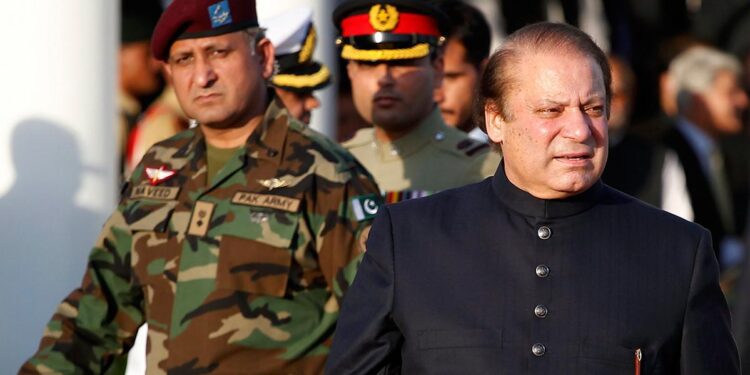In a surprising turn of events, Nawaz Sharif, the seasoned political stalwart and three-time former Prime Minister of Pakistan, encountered a significant setback in the recent general elections. Despite high expectations and speculations of implicit support from the military establishment, Sharif’s Pakistan Muslim League Nawaz (PMLN) fell short of securing a decisive victory. This article aims to dissect the multifaceted factors contributing to Sharif’s electoral defeat and to provide insights into the intricacies of Pakistani politics.
Army Support: Myth or Reality?
Speculations surrounding tacit support from the military for Nawaz Sharif’s political comeback have been rife, yet the election results tell a different story. Despite the perceived alignment between Sharif and the army, his party, the Pakistan Muslim League Nawaz (PMLN), fell short of securing a significant victory.
Political Maneuvering and Power Struggles:
The power dynamics within Pakistan’s political landscape have been tumultuous, marked by strategic maneuvering and shifting alliances. While Sharif attempted to rally his supporters and consolidate his position, formidable challenges, including legal battles and internal rifts, hampered his electoral prospects.
Public Perception and Voter Sentiment:
Beyond the corridors of power, voter sentiment played a pivotal role in shaping the outcome of the elections. Despite Sharif’s efforts to appeal to the electorate, public dissatisfaction with the status quo and concerns over governance issues weighed heavily on the minds of voters, influencing their choices at the ballot box.
Economic Challenges and Policy Failures:
The economic landscape of Pakistan has been marred by challenges ranging from inflation to fiscal instability. Sharif’s tenure as Prime Minister was marked by promises of economic prosperity, yet persistent issues such as corruption allegations and policy failures eroded public trust and confidence in his leadership.
Lessons Learned and Paths Forward:
As Nawaz Sharif navigates the aftermath of his electoral defeat, there are valuable lessons to be gleaned from this experience. Adapting to changing political dynamics, addressing governance issues, and forging meaningful alliances will be critical in charting a path forward for Sharif and his political aspirations.
Nawaz Sharif’s electoral defeat underscores the nuanced nature of Pakistani politics, where alliances are forged and broken, and power dynamics continually evolve. As Sharif navigates the complexities of political resurgence, the road ahead promises to be challenging yet ripe with opportunities for renewal and redemption.
















